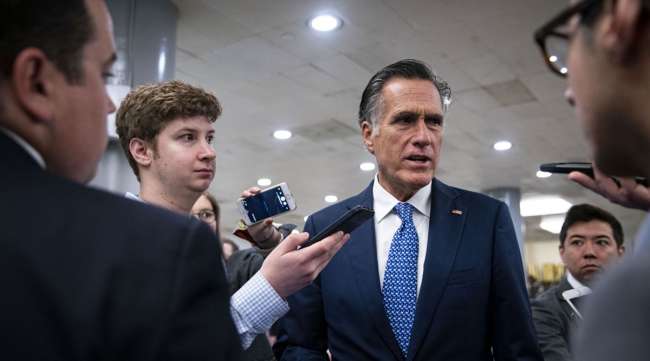Bloomberg News
Gas-Tax Indexing to Fund Infrastructure Gains Senate Momentum

[Ensure you have all the info you need in these unprecedented times. Subscribe now.]
Republican and Democratic senators said June 10 they were open to considering the first change in the national gasoline tax since 1993 to help fund a bipartisan infrastructure spending package they plan to propose to President Joe Biden.
Indexing the gasoline tax — currently 18.4 cents per gallon — to a measure of inflation has been discussed by a bipartisan group of senators working on a compromise plan, according to Sen. Mitt Romney (R-Utah), who has taken a leading role in those talks.
“It keeps it at the same value that it has today,” Romney said of indexing the tax.
Disagreement over how to pay for the biggest infrastructure bill in decades contributed to the breakdown in Biden’s direct talks with GOP senators led by Sen. Shelley Moore Capito (R-W.Va.) earlier this week. The focus of bipartisan negotiations has now shifted to the group including Romney, though some Democrats are eager to get moving on a go-it-alone strategy.
Dick Durbin (D-Ill.), the No. 2 Senate Democrat, said June 10 he’s in favor of indexing the gas tax. Still, it’s unclear whether the White House would endorse such a move. The administration has opposed user fees as a mechanism for funding, saying it would put undue burdens on lower-income Americans. Biden has pitched tax hikes on companies and the wealthy, which the GOP rules out.
Spending Figure
“I’ll take a look at it,” Sen. Jon Tester (D-Mont.), who’s a participant in the talks, said with regard to indexing the tax. “The trust fund is in terrible shape.”
Gas tax revenues go to a dedicated so-called trust fund that’s used to pay for roadway and transit costs.
Romney separately said that the bipartisan group has reached an agreement on a top-line figure for the infrastructure package, without specifying to reporters what that number is.
Biden’s most recent figure was $1.7 trillion in the talks with Capito, down from an initial $2.25 trillion for his American Jobs Plan. The Capito group had proposed $257 billion in net new spending above amounts that Congress was expected to approve for coming years.
Senate Finance Chair Ron Wyden (D-Ore.), who has not been engaged in the bipartisan infrastructure talks, said he would look at any gasoline tax indexing proposal before commenting. He noted that Biden has a “reservation about this as a regressive tax” and highlighted the Democratic view that corporations are underpaying taxes now.
‘Better Chance’
“The question is how is the money to be raised and is it going to be done in a fair way,” Wyden said.
The last gasoline levy increase came under President Bill Clinton’s administration, in a broad 1993 package of tax hikes aimed at reducing budget deficits at the time. It squeaked through without Republican votes.
Sen. Chuck Grassley (R-Iowa) said June 10 about indexing the levy, “It’s better than increasing the gas tax and it has a better chance of getting done.” He also that if that had been done in the early 1990s “we wouldn’t be in the situation we are in now.”
Want more news? Listen to today's daily briefing below or go here for more info:




